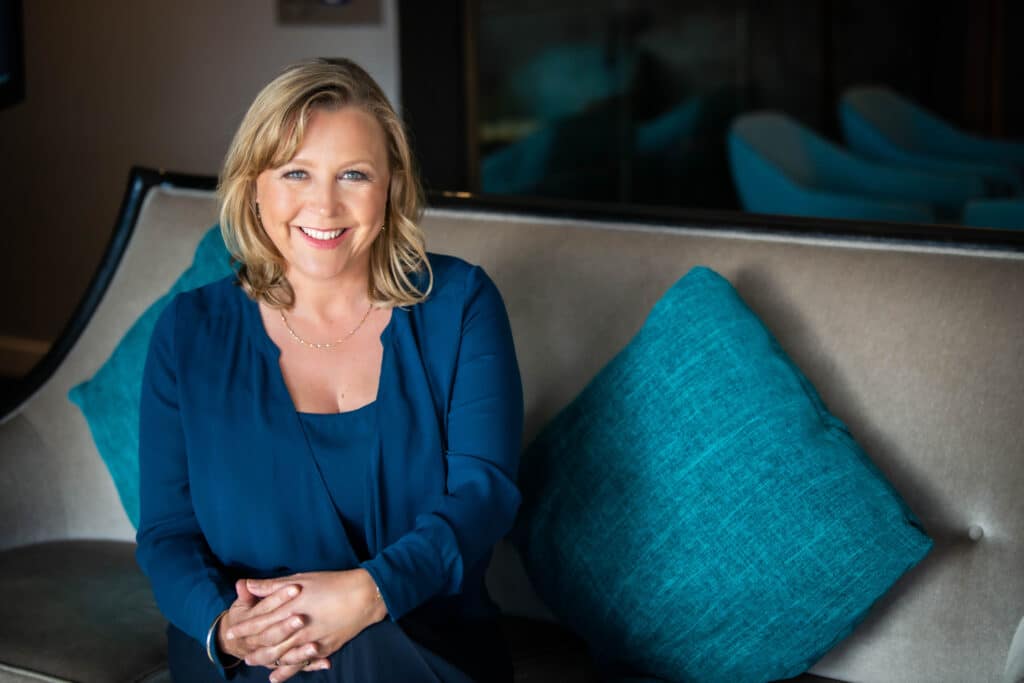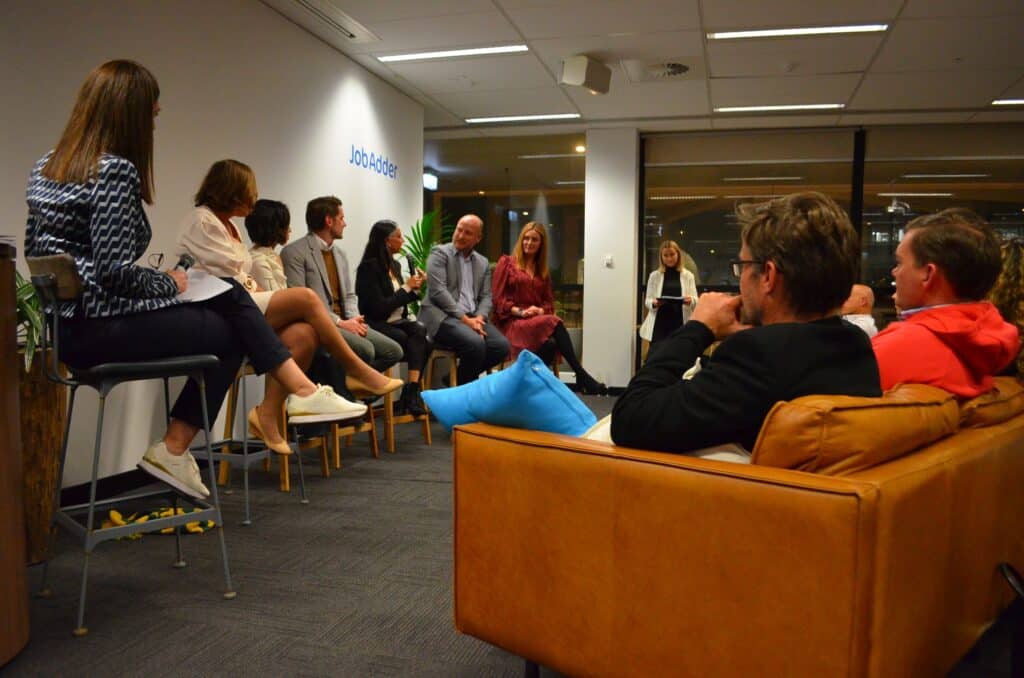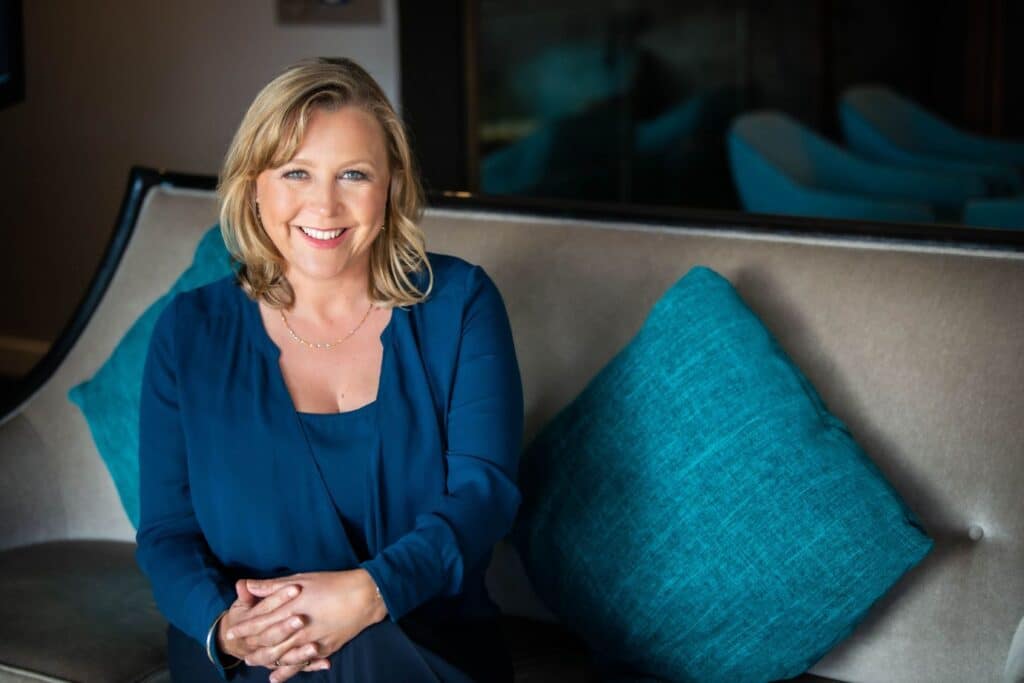Nina Mapson Bone has tried to write a book four times. She would start, then stop, then give up.
But then she tried writing on a topic that was a little more meaningful for her. And that topic was meaningful work.
“Unlike other books I had tried to write before, I couldn’t stop with this one. I got obsessed,” she said.
Nina Mapson Bone is the Managing Director of Beaumont People, the President and Chair of Recruitment, Consulting and Staffing Association of Australia and New Zealand and Chair of the Development Committee of the North Foundation.
Now, to that impressive resume, she can add ‘author’ after launching her new book Meaningful Work: Unlock your unique path to career fulfilment.

The book features six inspirational stories on how others have applied the theory of meaningful work, developed by Beaumont People’s world-first research, into their career and working lives. It also gives readers advice and exercises to find meaningful work within their own lives.
Mapson Bone held a book launch event on July 20. Five of the people featured in her book sat on a Q+A panel for people to learn more about what meaningful work is.
World-first research
Before beginning her development of the concept, Mapson Bone found there was no research anywhere in the world that defined what meaningful work is.
This inspired her and her team at Beaumont People to take action. They conducted research and produced the 2023 Beaumont People’s Meaningful Work Insights Report.
The researchers found 70 per cent of respondents strongly agreed they would ‘leave an organisation’ if they didn’t feel safe physically, mentally and emotionally. This figure increased by nearly 10 percentage points from data in 2019, before the COVID-19 pandemic.
What’s more, 58 per cent of respondents strongly desire to make a difference and contribute to society, up from 52 per cent in 2019.
From this research, Mapson Bone realised meaning and purpose in work is important to Australians, but perhaps they didn’t realise it themselves.
“I was trying to think of the best way to get this message out,” Mapson Bone said.
“And I thought writing a book is an easy way to get the message out.”
In her book, Mapson Bone defines ‘meaningful work’ as the importance one places on work in the context of their societal and cultural environment.
“Meaningful work is unique for every individual,” she said.
“But there are factors to break down to see what it means for you.”
These are the individual, job, organisational and societal factors. Assessing your personal interests, abilities and goals, the quality and quantity of your work, the leadership and culture in your workplace and your ‘needs and wants’ in your career help you find meaningful work.
Mapson Bone said many people aren’t able to figure out what meaningful work is for them. Some get stuck in a cycle where they leave a job they dislike after a short period of time, but end up in the same place as they were before, because they don’t know what they want out of their working life.
Her research and methods of assessing meaningful work helps people answer this all-important question.
“Nobody’s job is meaningful all the time,” she said.
“But it’s about getting the balance right.”

‘It can change your life.’
Meaningful work can change overtime based on how your values and circumstances change. This is certainly the case for Pamela Bishop, the Chief Operating Officer at Blooms the Chemist.
Bishop began working in a pharmacy in Ireland when she was 17 years old and has worked in the industry ever since, joining Blooms the Chemist when she moved to Australia. But the idea of meaningful work has shifted since she was a teenager.
“What’s important to me now is different to what was important to me then,” she said.
And at 17, after finishing high school, what was important to her was hanging out with her friends, shopping and her boyfriend.
Even though Bishop values different things out of her work now, she has learned a lot from working in the same industry for 17 years, and with the one company, Blooms the Chemist, for her whole working life in Australia.
One of those things is, if someone is considering leaving their job, they must figure out if they are leaving the job or if they are leaving the company. If the company is good, but the job itself is unfulfilling, Bishop said people need to have a conversation with their boss to figure out how to make their job more meaningful and more fulfilling.
“It’s not an easy conversation and it requires lots of courage,” she said.
“But if you do it, it can actually change your life.”
‘It’s not what I do – it’s why I do it.’
Courage is extremely important in establishing an individual’s meaningful work, something that Mimi Naylor has always had in her working life.
In fact, it was the reason she was fired from her first job at age 16.
Naylor, now the founder and clinical director of Talkshop Speech Pathology, was volunteering in a residential home. One day, she spotted one of the residents, who had been sitting down all day. His legs were purple and swollen.
Naylor lept into action without thinking. Within two minutes, she had him on the floor doing physio exercises to get his legs moving.
“Out of the corner of my eye, I see this stern look from my supervisor,” she recalled.
Even though she lost her volunteering gig for doing work “outside of her job description”, it was a very important turning point for Naylor.
“From that experience, I found I needed to be there and help when someone needed help. That was meaningful work for me,” she said.
“Meaningful work is the ability to be completely myself, helping and connecting with other people and allowing them to express themselves.
“It’s not what I do – it’s why I do it.”
Naylor now owns and runs her own private speech pathology, where she can work the way she wants, pursuing a career in helping people, just as she helped that man when she was 16 volunteering at the residential home.
“If you’re passionate about something, then pursue it. If it’s in your heart, then why stop?” she said.
‘We are all juggling so much.’
Sometimes, circumstances in your life, social stigmas and other workplace barriers can make prioritising meaningful work challenging.
Shirley Chowdhary has had an extensive career in a range of industries, from journalism to finance to work in the non-for-profit sector. In 2019, among many other accolades, she was named by the Australian Financial Review as one of its 100 Women of Influence. She sits on the board of the Australian Associated Press, the Royal Australian Institute of Architects and other organisations.
But after taking a 10-year career break to raise her children, Chowdhary faced a number of obstacles finding a job.
“Even after listing all the things I’ve done, it’s the 10-year gap after having kids that resonates with people the most,” she said.
“Most recruiters can’t look beyond what they see in front of them.”
So when she was looking for work after taking time to raise her family, finding meaningful work was impossible when simply finding a job was proving difficult.
But Chowdhary learned a lot about herself and what meaningful work is to her during this period of time.
“I’ve learned the best lessons from the jobs I disliked the most,” she said.
“We are all juggling so much – whether it be kids, ageing parents or whatever it may be – that you can’t always prioritise meaningful work.”
However, going through periods of work without meaning allows you to find what meaningful work is for you, Chowdhary said.
“Now I am in a privileged position that I can (prioritise meaningful work),” she said.


